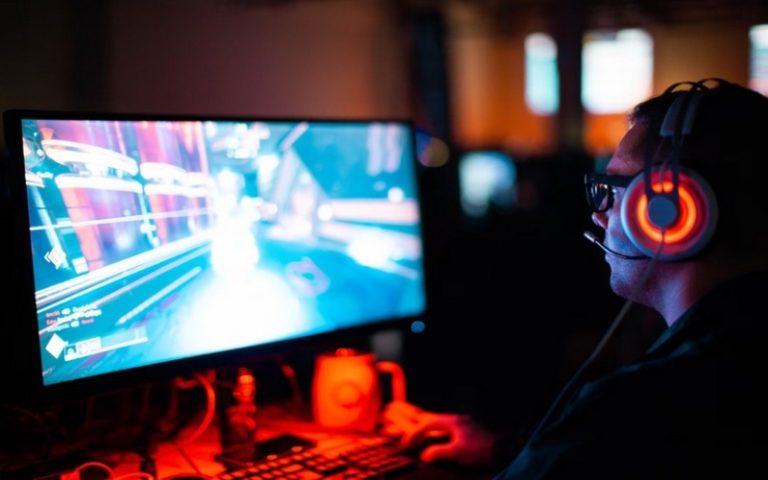Introduction
In recent years, the landscape UFABET เข้าสู่ระบบเว็บคาสิโน of social interaction has undergone a transformative shift with the advent of online gaming. No longer confined to traditional face-to-face encounters, people are now engaging in a myriad of virtual worlds, connecting with others through the medium of online games. While these digital experiences offer new avenues for socialization, the impact of online gaming on social interaction is a complex and multifaceted phenomenon that merits exploration.
The Rise of Digital Communities
Online gaming has given rise to expansive digital communities, where players from around the globe unite to share common interests and experiences. These communities transcend geographical boundaries, creating a globalized space where individuals can connect based on shared passions for specific games. Whether it’s a massively multiplayer online role-playing game (MMORPG) or a competitive first-person shooter, players forge bonds with others who understand the nuances and intricacies of the virtual worlds they inhabit.
These digital communities provide a sense of belonging, fostering camaraderie among players who may never meet face-to-face. Friendships formed in the digital realm can be just as meaningful as those in the physical world, with shared victories, defeats, and collaborative achievements building a foundation for lasting connections.
Socialization in the Digital Age
Online gaming has redefined the concept of socialization, offering a platform for individuals to interact in ways that were previously unimaginable. In-game chats, voice communication, and virtual meet-ups provide avenues for players to communicate, strategize, and build relationships. This digital form of socialization often extends beyond the gaming experience itself, with players bonding over shared interests, hobbies, and even real-life challenges.
However, the shift towards digital socialization has sparked debates about the quality of these interactions. Critics argue that online gaming may contribute to a decline in face-to-face social skills, as individuals become more accustomed to communicating through screens. Striking a balance between digital and physical interactions becomes crucial to ensure a holistic approach to social development.
Challenges to Face-to-Face Interaction
While online gaming enhances connections within digital communities, it may inadvertently pose challenges to face-to-face interactions. Some individuals may find the comfort and convenience of virtual communication more appealing, leading to a reduction in offline social engagements. The allure of immersive digital worlds can sometimes make the tangible, immediate connections in the physical realm seem less appealing, potentially impacting the development of social skills in traditional settings.
Moreover, the anonymity afforded by online gaming can contribute to a sense of detachment. In a virtual environment, individuals can choose to reveal or conceal aspects of their identity, leading to potentially skewed perceptions and hindering the formation of authentic connections. Striking a balance between the digital and physical aspects of social life becomes crucial to mitigate these challenges and ensure a well-rounded social experience.
Positive Impacts on Collaboration and Teamwork
Online gaming often involves collaborative gameplay, where players must work together to achieve common objectives. This fosters the development of teamwork, communication, and strategic thinking skills. In games like multiplayer online battle arenas (MOBAs) or team-based shooters, players learn to coordinate actions, communicate effectively, and adapt to dynamic situations – skills that have real-world applicability in various professional and social contexts.
The collaborative nature of online gaming extends to problem-solving and decision-making, as players often encounter complex challenges that require creative solutions. These experiences can translate into improved critical thinking skills and the ability to navigate real-life challenges through effective collaboration.
Escapism and Its Impact on Offline Relationships
One of the potential drawbacks of extensive online gaming is the risk of escapism, where individuals immerse themselves in digital worlds to avoid real-life issues. This can strain relationships with family and friends, as the allure of virtual adventures may take precedence over real-world responsibilities. It becomes essential for individuals to maintain a healthy balance between online gaming and offline obligations to ensure the preservation of offline relationships.
Communication is key in addressing the potential negative impacts of escapism, as open dialogue can help individuals understand each other’s perspectives and establish boundaries. Encouraging moderation and setting realistic expectations for gaming time can contribute to a more harmonious coexistence of online and offline social interactions.
Conclusion
The impact of online gaming on social interaction is a nuanced and evolving phenomenon. While digital communities provide platforms for global connections and collaboration, challenges such as the potential decline of face-to-face interactions and the risk of escapism require careful consideration. Striking a balance between the digital and physical realms is essential to harness the positive aspects of online gaming while mitigating potential drawbacks.
As technology continues to advance, the integration of online gaming into the fabric of social interaction will likely evolve. Recognizing the value of both virtual and real-world connections can pave the way for a harmonious coexistence, where individuals can navigate the digital realm while maintaining the richness of offline relationships. Ultimately, understanding the multifaceted impact of online gaming on social interaction allows society to harness its potential for positive growth while addressing potential challenges.

